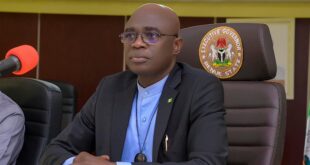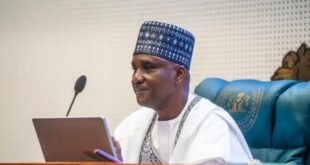Following the announcement by the Central Bank of Nigeria (CBN, last weekend that a new round of regulator-induced recapitalization of banks is in the pipeline, the Chartered Institute of Bankers of Nigeria (CIBN) has said that banks are prepared to comply with any new capital requirement that may be imposed.
The President of the CIBN, Mr. Ken Opara, who stated this at the National Seminar on Banking and Allied Matters for Judges in Abuja yesterday, hinted that banks were already pursuing various strategies, including bond issuance and equity.
In his words, “You will also see that banks have issued bonds as much as possible and have redeemed those bonds when they mature; it’s not a difficult thing.
“I think the major thing is that the industry is deep, they have deep pockets, and they have financial strength. The stock exchange where they are going to go to raise money is also quite deep. The Nigerian stock market, for instance, is the second largest in Africa, and that tells you clearly that it is a deep market. Also speaking further, Opara criticised the magistrate courts over frequent orders to freeze bank accounts.
According to him, orders were often issued without proper investigation, adding that such orders should come from the high courts.
He also condemned what he described as the harassment of bank officials by the Economic and Financial Crimes Commission (EFCC), saying EFCC officials always storm banks, demanding that they place ‘Post No Debits’ (PNDs) on customers’ accounts without court orders. He stated, “This is a violation of the legal provisions on the confidentiality of bank accounts. When banks demand an order of court, EFCC officials harass and intimidate bank officials and, in some cases, arrest them. Banks are calling for the EFCC to be held accountable for their reckless actions in order to curb the abuse of power.
“Judgement creditors are often proceeding against banks as garnishees without first verifying the indebtedness of the bank to the judgement debtor.
“This practice imposes unreasonable costs on banks, who are forced to pay legal fees even if they do not have the judgement debtor’s funded account.
“In some cases, banks do not receive summons from the court for the hearing, and the court may proceed to issue a garnishee absolute judgement on the bank.”
Subscribe to the Advocate News letter and receive news updates daily in your inbox.
 Advocate.ng Latest news update on politics, entertainment, sport and more
Advocate.ng Latest news update on politics, entertainment, sport and more




